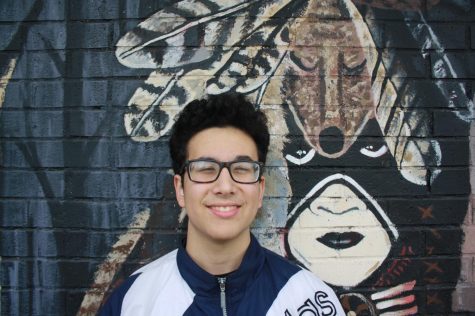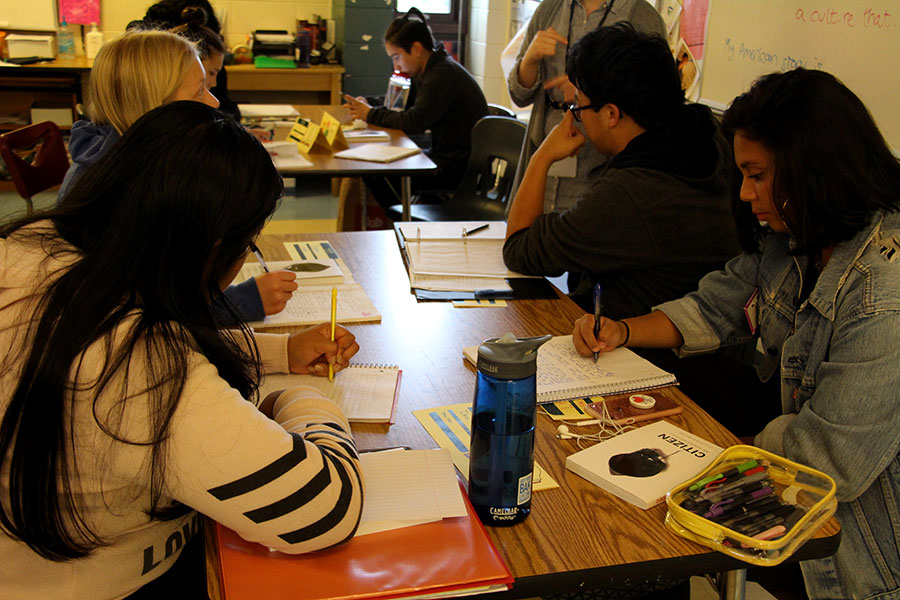“A class that needs to be taught” New women’s studies class is already impacting South
Pictured Above students in Contemporary Literature: Women’s Studies finish up their daily class work. Since the class is co-created, students and their work is “not just being lead by an adult, but learning from other people who are your age and demographic,” said senior Lydia Zupanc, pictured bottom right. Photo: Gabe
When Tanya Hodge first came to South she was asked what her dream class was. Her response: “Women’s Studies.” 18 years later, she teaches that very class. Co-listed as Contemporary Literature; Women’s Studies, the class “looks at the world from a feminist lens, but also a social justice lens,” said Hodge. This class is all about creating new discussions within the student body and in the classroom.
The goal of this class is to be a “social justice class and very culturally relevant.” As a co created class, the curriculum is based on what students want to see. Students can bring material they want to see taught into the class. Discussions also take up a large chunk of time in class. “The classroom itself is more like a community,” said senior Zak Winkle. The students share and talk about their experiences in class. They see a co-created class as beneficial as it is “not just being lead by an adult, but learning from other people who are your age and demographic,” said senior Lydia Zupanc.
For many years prior there was a Women’s Literature class taught by Louise Borman. This class differs from Borman’s in a few important ways. For one, it is less focused on literature and more on student lived experiences. Women’s Literature reportedly focused mostly on white women, while this class hopes to bring a more global, intersectional perspective to conversations around women’s issues.
To build this new class brought a set of challenges. Because of bureaucratic processes, the department, under Mary Manor, decided to rename an existing class, Contemporary Literature, to Contemporary Literature; Women’s Studies.
Feminism is a large talking point within the class. Some students of the class believe that many people have negative views of feminism. They believe that feminism is stereotyped as a white cis women’s game, rather than a movement for all people. Zupanc felt this class is “bringing light to the struggles of women of color and oppression against women. It’s really important for other people to realize this and learn that this is what our society is like.” The class tries to use discussions as way to center all students voices and not having one voice or experience dominate the room.
Projects and using learning in the community is a main component of this class. As this class is not meant to focus on history or theory, projects are see as a way for learning to be disseminated and used in a tangible way. For example, “one student did research on how many times the star tribune had pictures of young women in the sports section compared to young men… and it was a pretty stark difference,” said Hodge. To bring the learning to the community, they then wrote an open letter about what they observed. At the end of this semester long class, each student is expected to do a project that helps or impacts the community.
When asked why people chose to be in this class, responses varied widely. From “Girl power” to learning more, this class is meant to embrace different prior knowledges and inject new knowledge into the South High community. On why this class exists, Hodge’s responded “To make this world a more just place, this is a class that needs to be taught.”

Senior Gabe Chang-Deutsch is returning as the News editor for his fourth year in the Southerner. Gabe spends a majority of his time debating for South’s...











